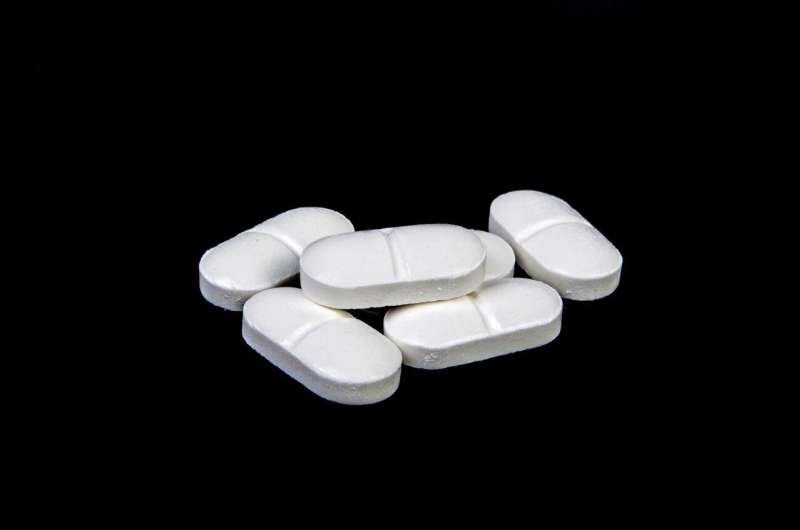This article has been reviewed according to Science X's editorial process and policies. Editors have highlighted the following attributes while ensuring the content's credibility:
fact-checked
peer-reviewed publication
trusted source
proofread
Study shows that low-dose aspirin associated with a 15% lower risk of developing diabetes in people aged over 65 years

New research to be presented at this year's Annual Meeting of the European Association for the Study of Diabetes (EASD) in Hamburg, Germany (2–6 October) shows that use of low dose (100mg daily) aspirin among older adults aged 65 years and older is associated with a 15% lower risk of developing type 2 diabetes.
The authors, led by Professor Sophia Zoungas, School of Public Health and Preventive Medicine, Monash University, Melbourne, Australia, say the results show that anti-inflammatory agents such as aspirin warrant further study in the prevention of diabetes.
The effect of aspirin on incident type 2 diabetes among older adults remains uncertain. This study investigated the randomized treatment effect of low dose aspirin on incident diabetes and fasting plasma glucose (FPG) levels among older adults.
The authors did a follow-up study of the ASPREE trial—a double-blind, placebo-controlled trial of aspirin, the principal results of which were published in NEJM in 2018. The original study showed that aspirin conferred a 38% increased risk of major hemorrhage in older adults without any reduction in incidence of cardiovascular disease.
The study enrolled community-dwelling individuals aged 65 years or over, and free of cardiovascular disease, independence-limiting physical disability and dementia. Participants were randomized 1:1 to 100 mg daily aspirin or placebo.
Incident diabetes was defined as self-report of diabetes, commencement of glucose lowering medication, and/or a fasting plasma glucose (FBP) level of 7.0 mmol/L or higher at annual follow-up visits. Patients with diabetes at the start of the study were excluded. Computer and statistical modeling assessed the effect of aspirin on incident diabetes and FPG levels respectively.
A total of 16,209 participants were included in the analysis (8,086 randomized to aspirin and 8,123 to placebo). Over a median follow-up of 4.7 years, 995 incident diabetes cases were recorded (aspirin: 459, placebo: 536). Compared with placebo, the aspirin group had a 15% reduction in incident diabetes and a slower rate of increase in FPG (difference in annual FPG change: -0.006 mmol/L).
The authors say, "Aspirin treatment reduced incident diabetes and slowed the increase in fasting plasma glucose over time among initially healthy older adults. Given the increasing prevalence of type 2 diabetes among older adults, the potential for anti-inflammatory agents like aspirin to prevent type 2 diabetes or improve glucose levels needs further study."
However, Professor Zoungas adds, "The earlier published trial findings from ASPREE in 2018 showed aspirin did not prolong healthy independent living, but was associated with a significantly increased risk of bleeding, primarily in the gastrointestinal tract. Major prescribing guidelines now recommend older adults take daily aspirin only when there is a medical reason to do so, such as after a heart attack."
"Although these new findings are of interest, they do not change the clinical advice about aspirin use in older people at this time."




















